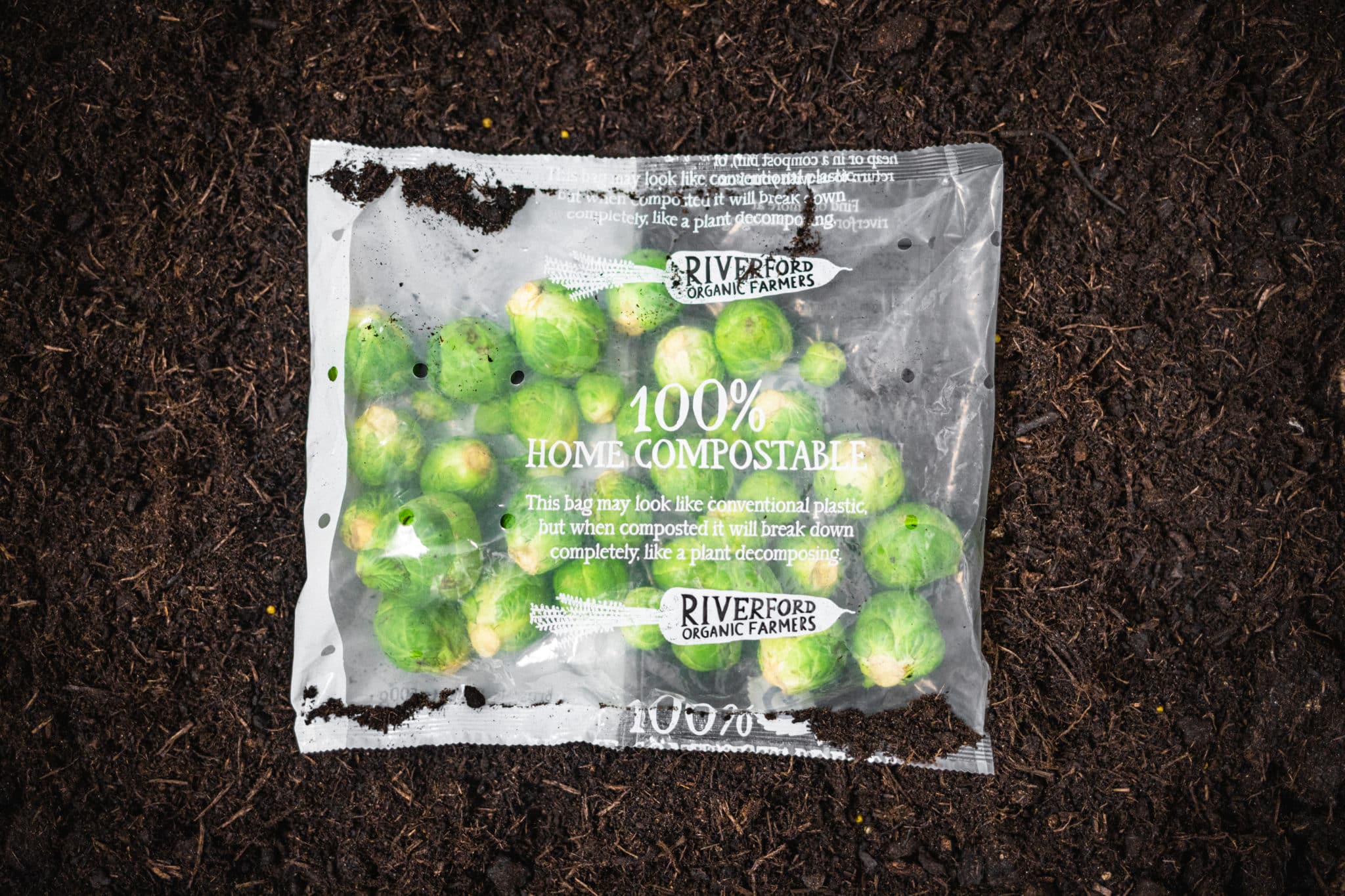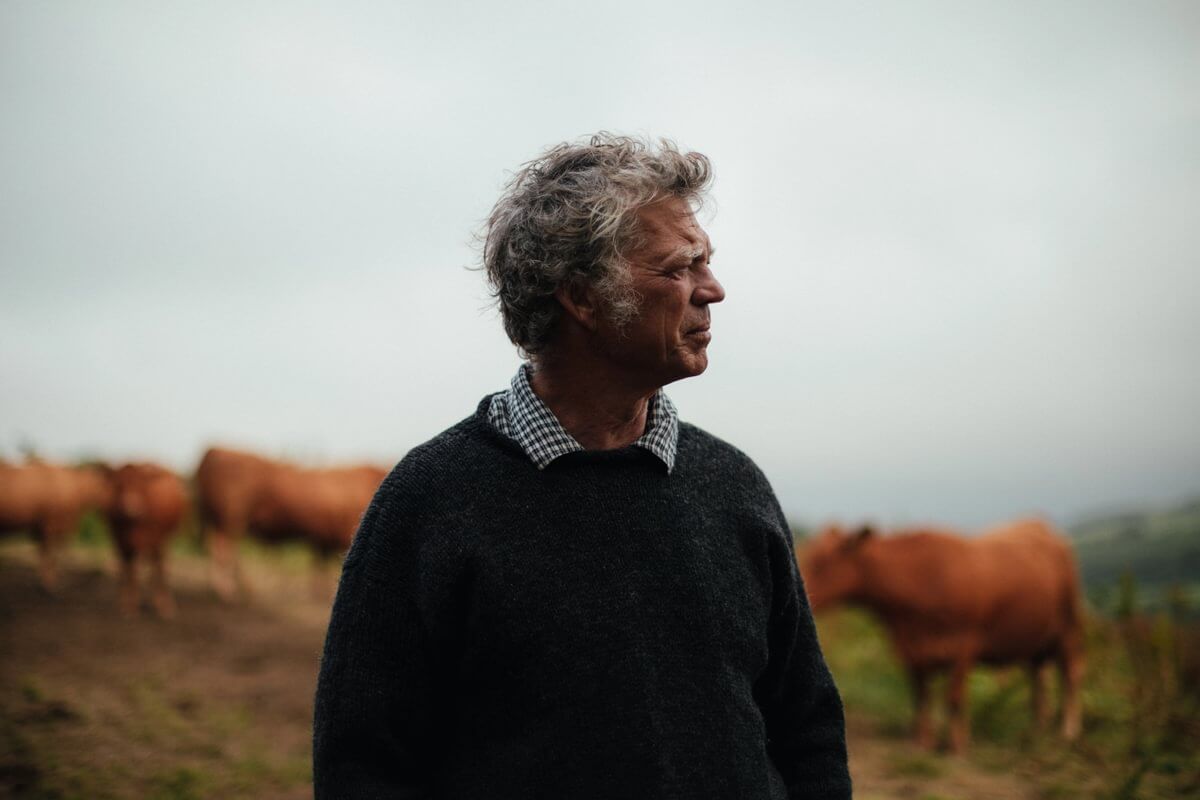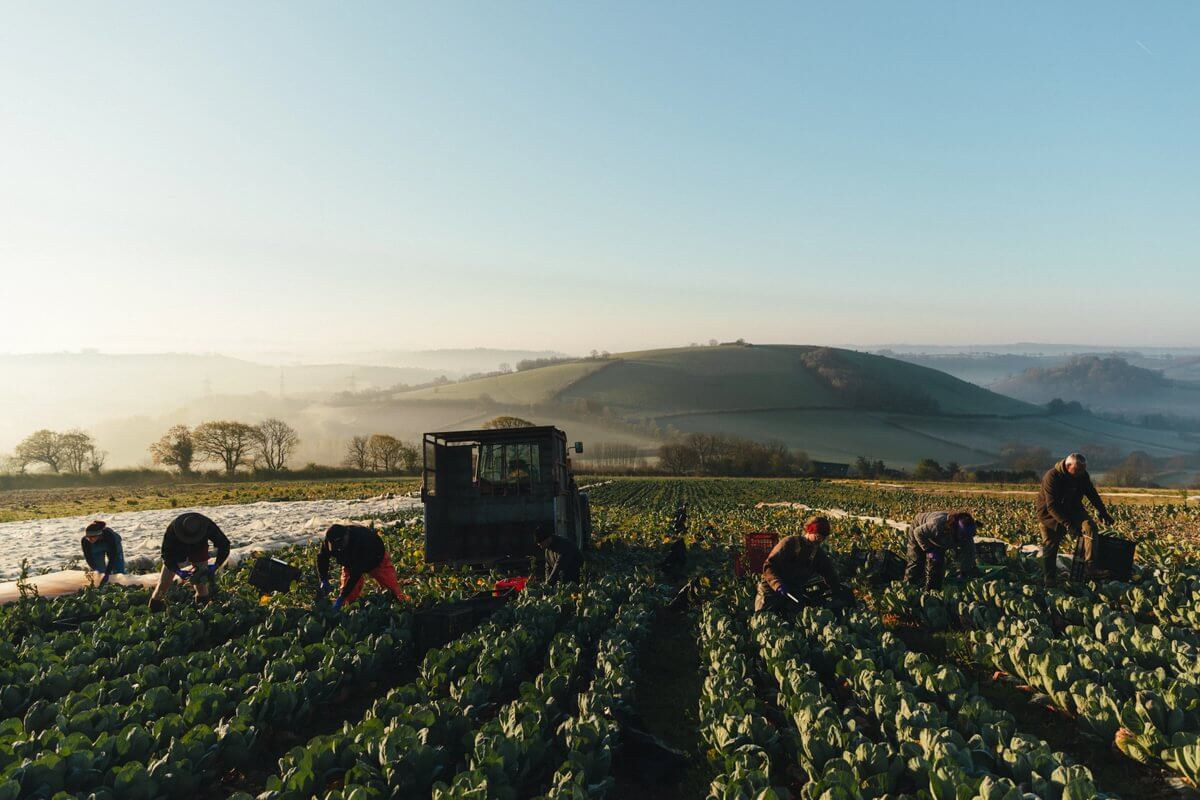Waste charity Wrap states that just six per cent of soft plastic packaging (such as bags and films) is recycled in the UK – and recycling rates are currently falling. ‘Zero to landfill’ more often means export to a questionable fate in a developing country, or incineration, while a new investigation found recently that collections of ‘recyclable’ soft plastic essentially go nowhere.
So, it was surprising to hear fellow veg box business Abel & Cole announce last week that they are abandoning compostable plastic packaging in favour of non-compostable, arguing that some compostable packaging fails to break down.
The difference between various ‘sustainable’ plastic alternatives is complex, and nightmarishly hard to communicate. There are several types of degradable plastic: oxydegradable (still sometimes peddled as a solution, but just breaks down into microplastics and really should be banned); compostable (requires industrial temperatures of up to 70 degrees in the compost heap to break down); and home compostable (a legal standard meaning that it will break down quickly at ambient temperatures). We use only home compostable materials, have done many trials and much work with our customers, and are confident that our packaging breaks down with no significant residue. Indeed, I compost everything our customers return myself, and use it to grow more veg.
There is a danger of compostable plastic polluting the recycling stream, but this depends on management – and as virtually no soft plastic is recycled anyway, it seems like a questionable argument. If added to other compostable kitchen waste, because it looks like regular plastic, there is a danger that the whole batch will be rejected for composting and go to landfill – which is why we ask our customers, if they cannot compost themselves, to return the packaging to us.
In reality, it is impossible for any business to implement a well-managed cradle-to-grave lifecycle for our packaging when there are over 30 different kerbside recycling systems across the country. The government has abdicated responsibility to the marketplace, and the result – despite a huge amount of effort and good will from dutiful citizens and some businesses – is confusion and chaos. As environment minister, Michael Gove promised us a unified kerbside recycling system; another to add to a long list of lies.
Perhaps most significantly, home compostable plastic is three times the price of conventional plastic. For Riverford, if you add the cost of sorting and composting what you send back to us, this amounts to £0.7m per year, or 21p per delivery. Should we give up and pocket the difference?
Home compostable plastic may not be the right solution for all businesses, but it is right for us. While our government fails to provide a unified kerbside recycling policy, we will continue to support this choice, and ask our customers to support it too – which we believe they do. Adding our packaging to the 290,000 tonnes of conventional soft plastic packaging thrown away every year in the UK, 94 per cent of which goes to landfill, incineration, or into our oceans, would be a step backwards in the fight against plastic pollution.
For more info on why Riverford believes in home compostable plastic, click here.
Click here for a guide to the different types of compostable plastic.










One of the unexpected bonuses about being a Riverford customer is that Riverford will take back the home-compostable plastic packaging and actually compost it.
I have tried! but I think I don’t produce enough heat in my small amount of compost (in one of those tumblers) to compost anything much. So when I get a magazine from an organisation proudly announcing that they’ve switched to compostable or even home-compostable plastic to post the mag in, I get a bit irritated (why use any envelope? for the enclosed unsolicited advertising?) I’m a waste geek, so I found out what happens to the collections in my area: food goes to anaerobic digestion (no plastics of any kind); garden waste to open windrow composting. In both cases, the first part of the process is stripping off plastic bags or sorting visible reject material. It’s a fast (not very lucrative) process: people don’t have time to read the bags. If the plastic stays in and isn’t actually compostable, it gets shredded and processed ends up on the land (I used to wonder why my bags of commercial ‘compost direct’ had little shreds of plastic and tiny shards of metal and glass in it). So most plastic, however described, goes straight into residual waste which in my area is incinerated. Knowing this, I save them the trouble and stick it in the black bin myself.
There was an interesting article in the Guardian’s Down To Earth quoting a study (the Big Compost Experiment) by UCL’s Plastic Waste Innovation Hub, involving 900 people using a range of home composting methods. They concluded there was no specification for plastics which was reliably home-compostable and that lab tests for these materials don’t work: https://www.theguardian.com/environment/2022/nov/03/greenwash-home-compostable-plastics-dont-work-aoe
So, thanks Riverford, you really are rather special for using plastics that you know you can compost, and for taking them back from customers like me who can’t.
I compost on a 2 year cycle: a year’s compost in one bin, top off with soil/compost, grow potatoes, use second bin. The Riverford ‘plastic’ has completely disappeared by then.
Thank you for that article, I have been putting the Riverford compostable packaging in our kerbside recycling, not realising the implications of that. I will now make sure I return everything to Riverford with the box. I would also be happy to pay an extra 21p each week to cover the costs of sending the packaging back to you.
The process of Gasification may be the best option in the future for recycling anything that usually ends up in general waste – including all types of carbon and plant based plastic packaging.
Waste is basically vaporised to form pure synthesis gas that can be used to produce clean burning bio-fuels and hydrogen.
This process produces zero harmful emissions and around 25% less carbon dioxide emissions compared to incineration.
Gasification can also be used to burn forestry waste in areas where forest fires are a problem and convert the waste into Biochar – a useful soil additive when used correctly.
Guy, your article is timely.
I’m a long-term Riverford customer and I got a Hotbin composter last year. I’ve been asking Riverford customer services for more details about Riverford compostible films: what are the optimum home composting conditions and what are the compost products, but it’s been like hens teeth getting what I would have thought would be an easy technical answer.
I guess the Hotbin doesn’t provide those conditions; it frequently reaches 60*C in the newest material added, but if this is too high to suit the film breakdown I could probably engineer closer conditions //if I knew what the optimum was//.
Can you help?
I’m really interested in compostible packaging and it’s future, and I commend Riverford’s (and Alara’s) example in adopting it.
I have to say I frequently have a lot of shredded plastic film when I empty the Hotbin; no doubt some of it is breaking down, but I can’t estimate quantitatively how much of it is (nor it’s age).
Hello! I also have a hotbin & find that it’s just too quick for the home compostable plastics – the plastic breaks down but is still in shreds once it comes out of the bottom. I now put all my compostable plastics on my cold compost and just ignore it for 12 months. This seems better, but there’s still shreds in places. I’d be interested in how it’s done at Riverford – I’m guessing the compost heap there is bigger than my entire allotment 😂
I have 2 compost bins. I put the plastic, torn into pieces, into an ordinary compost bin. After a year,
I’d still like to have the formal technical specification for the compostible films that Riverford use, explaining the target composting regime and also what the products of decomposition are.
** I hope someone at Riverford reads this and responds **
I have 2 compost bins. I put the plastic, torn into pieces, into an ordinary compost bin. After a year, I stop adding to it. By which time my other compost bin contents have rotted down for me to throw over my rhubarb patch. At first, I must admit, at being quite surprised how the plastic completely disappeared.
So then I can begin putting my kitchen waste, plus Riverford plastics, into that one.
I used to have so much more, but now it is only my husband and I.
Sometimes a third pile is needed just to finish off the rotting process.